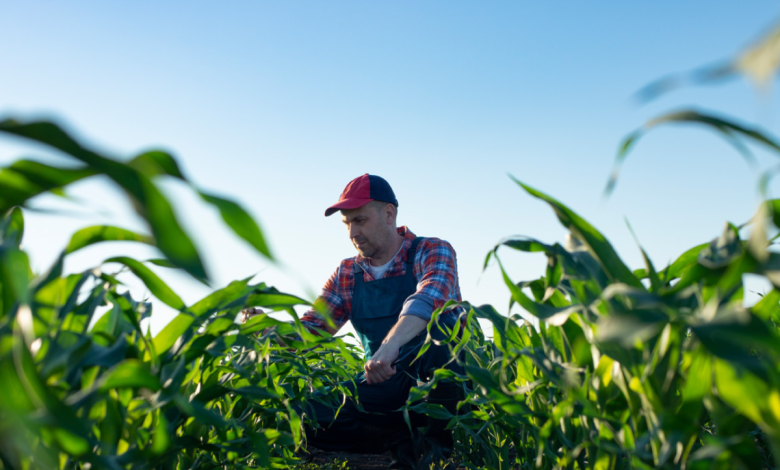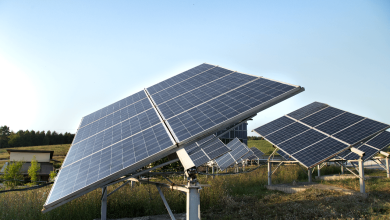How are European Farms Adapting to Climate Change?

As climate change-induced extreme weather events wreak havoc on agriculture in Spain and Italy, farmers are turning to a combination of traditional and cutting-edge techniques to safeguard the production of regional staples like olive oil, Prosecco, and wine. These adaptations are crucial in the face of billions of euros in losses that both countries have suffered due to changing weather patterns.
Reviving Soil Health in Spanish Olive Groves
In Spain, renowned as the world’s top olive oil producer, the olive oil industry is grappling with desertification and drought. To combat this, Spanish farmers are revisiting age-old practices, specifically the use of cover crops. Cover crops are plants grown between trees in olive groves to shield the soil. This practice is making a significant impact on olive farming in Spain, with approximately 30% of olive groves now utilizing cover crops, according to the country’s agriculture ministry. Experts and companies operating in the agriculture sector anticipate rapid growth in this approach over the coming years.
Cover crops are nature’s sponges, absorbing and conserving water, preventing soil erosion, and revitalizing nutrient levels. While these practices may initially reduce crop yields, they are known to enhance the quality of olive oil and protect the soil for future harvests, as evidenced in a 2019 study published in the Journal of Nutrition and Plant Science.
Spain has already been at the forefront of water-saving techniques throughout the olive oil production process. Gonzalo Delacamara, the director of the IE Centre for Water & Climate Adaptation in Madrid, explains that cover crops act as micro-reservoirs, allowing rainwater to linger on the ground longer before runoff, increasing the likelihood of water penetration.
The adoption of cover crops aligns with the European Union’s environmental incentives and its goal to reduce nutrient loss by 50% by 2030. In January, the EU began subsidizing farmers who implement cover crops as part of the new Common Agricultural Policy.
Cover crops also foster biodiversity, attracting insects like the green lacewing, which, in turn, help control pests such as the olive fruit fly and the olive moth. Notably, olive farmers have observed an increase in bird and reptile populations since introducing cover crops, contributing to a more balanced and thriving ecosystem.
Challenges in the Italian Agriculture Industry
Italy, known for its world-class wines and pasta wheat, has not been immune to climate-related challenges. In 2022, the country faced one of its most severe droughts in seven decades, causing an estimated €6 billion in damages to the farming sector. Italy’s agriculture industry is the third-largest in the European Union in terms of production value, trailing only France and Germany.
The adoption of digital tools in Italian agriculture is steadily increasing, rising from 6% in the previous year to 8% in 2022. This shift is driven by the urgent need to conserve water in a country that has traditionally enjoyed abundant water resources, especially in the northern regions.
Innovations for Sustainable Farming in Italian Vineyards
Winemakers in Italy are among those adapting to the changing weather conditions. One such winemaker, Simone Rech, who produces Prosecco wine, employs sensors to monitor air and soil conditions. These sensors help gauge factors like temperature and leaf evaporation, allowing vineyards to withstand the challenges posed by drought.
Additionally, measures such as rainwater and wastewater collection, purification, and reuse are becoming standard practices. This sustainable approach not only conserves water but also addresses environmental concerns.
The rise in the use of digital tools in Italian agriculture has been facilitated by the growth of agri-tech start-ups. These start-ups are developing innovative solutions to tackle climate change challenges, enabling farmers to adapt and thrive in a changing agricultural landscape.
Also Read : The Earth Might Not Be Safe for People Anymore: A Report
Looking Ahead: Adaptation in Agriculture
The rapidly changing climate poses substantial challenges to agriculture across the globe. The adaptation measures undertaken by farmers in Spain and Italy demonstrate the resilience and resourcefulness of those working the land. These innovative approaches, rooted in tradition and empowered by technology, provide hope for safeguarding agricultural production in an era of unprecedented climate change. As the agricultural sector continues to evolve, the adoption of sustainable practices will be paramount in ensuring food security and environmental sustainability.



